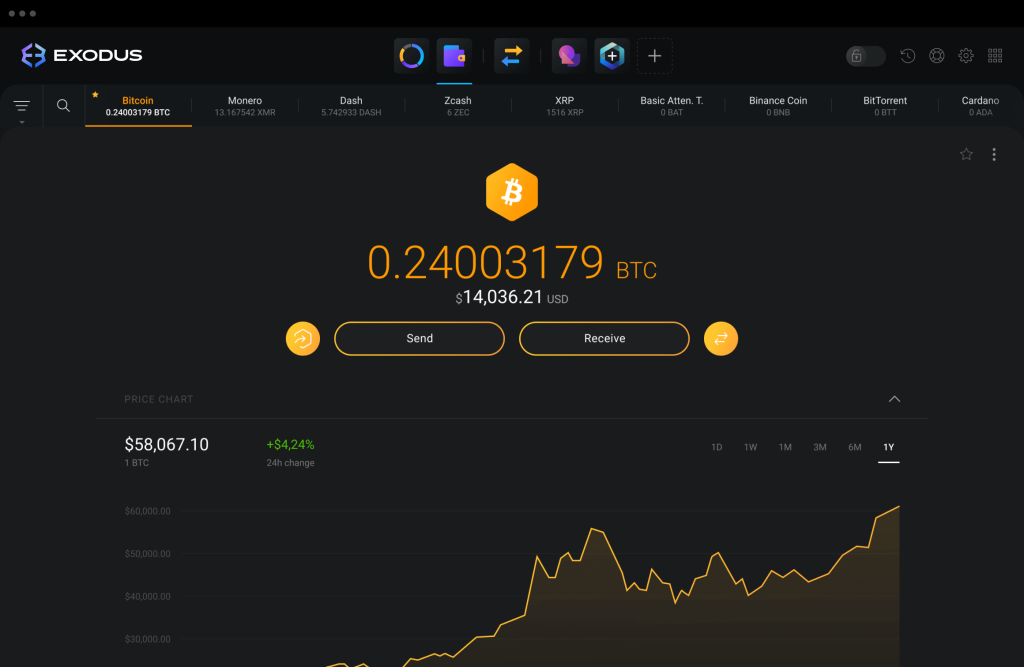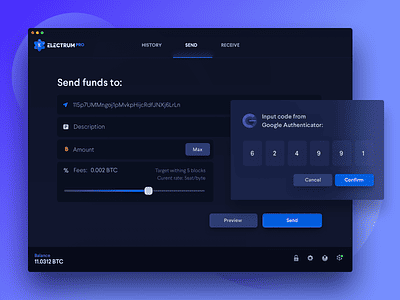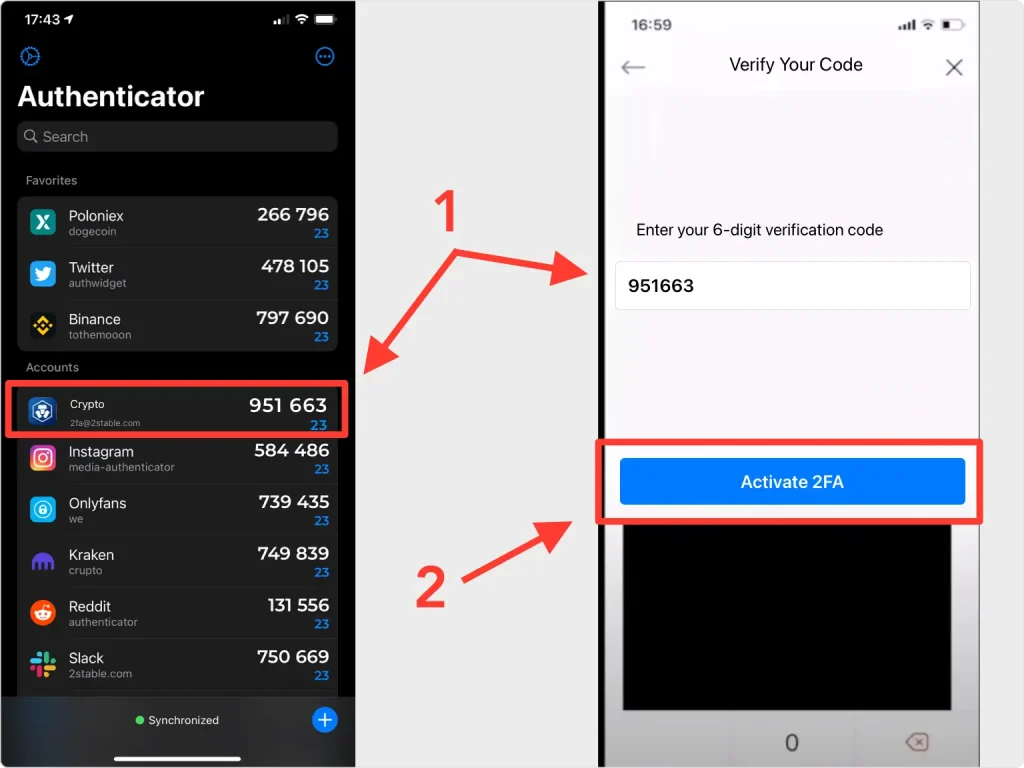Welcome to “Secure Desktop Crypto Wallet: The Ultimate Guide to Safer Transactions,” where safety meets simplicity in the world of digital currency. If you’ve ever felt a jolt of fear with every coin transfer, you’re not alone. That’s why having a secure desktop crypto wallet is non-negotiable. In this guide, I’ll equip you with the knowledge to pick, protect, and power up your wallet for tip-top security. Let’s dive into the essentials of desktop wallet safety, compare top-notch solutions, and arm you with strategies to dodge the digital dangers out there. Ready to master the art of secure crypto storage and hassle-free handling? Let’s get started!
Understanding Desktop Wallet Security
Why Secure Desktop Wallets are Essential for Crypto Asset Protection
Keeping your crypto safe is like locking your treasures in a vault. A secure desktop crypto wallet is that vault on your computer. It protects your digital coins from thieves and hackers. But why are these wallets so vital? Well, they shield your precious crypto assets with layers of protection. Without them, you might as well leave your digital door wide open.
Remember, desktop wallets keep the keys to your crypto wealth. Securing them ensures only you can enter and move your assets. It’s like having a special key for a treasure chest, one that only you can use. This makes sure no one else can snatch up your crypto without your nod.

Blockchain tech makes trustless dealing a snap. This means you don’t need a middle man like a bank to keep your coins safe. But with great power comes great need for safety. You become your own bank, and your desktop wallet’s security becomes crucial.
A peek into the world of desktop wallets shows us how hackers try to pry. They’re after your private keys which unlock your crypto stash. The better you guard these keys, the safer your assets stay. That’s why crypto protection is not just smart; it’s a need if you’re serious about keeping your crypto safe.
Comparing Encrypted Wallets and Multi-Signature Solutions
Now let’s dive into two mighty shields for your crypto: encrypted wallets and multi-signature solutions. What are these? Encrypted wallets scramble your info so only you can read it. Just like secret code that only you know. This keeps your wallet a riddle for hackers.
Multi-signature wallets need more than one key to open. Imagine a chest that needs three keys instead of one. Even if a thief gets one key, they’re stuck. They need all keys to get the loot. So, multi-signature means more folks need to OK a move before your crypto can wave goodbye.
Using an encrypted wallet is like having a secret handshake with your crypto. It’s a layer of code that makes sure it’s really you. Hackers may knock, but without the secret code, they can’t enter.

With multi-signature wallets, you add pals to your crypto’s guard squad. You pick a few trusted people who also need to give a thumbs-up for big moves. This means stealing your crypto gets way harder for bad actors.
Both these options beef up digital wallet security big time. They make sure that your crypto assets are stashed safely on your desktop. It’s like adding extra locks on your vault, making it super tough for thieves to break in.
Choosing between encrypted wallets and multi-signature setups can be a head-scratcher. Think about how much control or teamwork you want over your crypto. Do you want to hold all the keys, or is it better to split them with folks you trust? Your pick can shape how safe and smooth your crypto journey is.
To wrap it up, whether you go encrypted or multi-signature, you’re adding tough armor to your crypto wallet. You’re taking big steps toward keeping your digital riches under lock and key. It’s all about giving you peace of mind and keeping your digital coins out of the wrong hands.
Implementing Security Measures in Desktop Wallets
The Importance of Cold Storage Practices
Cold storage keeps your crypto safe when you’re not using it. It’s like a digital safe. You move your crypto assets off the internet and onto a device. This can be a USB stick, a piece of paper, or special hardware. It’s not connected to the web, so hackers can’t touch it. That’s why it’s a smart move for your desktop wallet.
Here’s why cold storage matters for your crypto. Your desktop wallet stores your private keys. These keys open up access to your crypto. If someone gets them, they get your funds. Keeping them offline in cold storage means even if someone attacks your computer, they won’t find your keys.
Integrating Two-Factor Authentication and Strong Passwords
Two-factor authentication (2FA) is a must. It adds a second check when logging in or making transactions. You know when you log into a website and it asks for a code from your phone? That’s 2FA. It means if someone guesses your password, they still need your second factor to get in.
Here’s how you make your password tough. Use a mix of letters, numbers, and symbols. Make it long but something you can remember. Don’t use easy guesses like your birthday or “password123”. A strong password is your first line of defense.

When enabling 2FA, you’ll use something you know (your password) with something you have (like your phone or a special key). This stops a thief even if they know your password. It’s one more barrier between your wallet and wrong hands.
And about those recovery seeds. They’re the backup for your wallet. If your computer goes kaput, they get your wallet back. Write them down and keep them in a safe place. Don’t store them on your computer or online where they can be swiped. They are the last resort to get your funds back, so treat them like treasure.
By putting these practices to work, you make sure your desktop wallet is a fortress. Your crypto stays safe, and you can sleep better knowing it’s under a heavy lock. Remember, securing your desktop wallet is about layers – the more you have, the safer you are. Use cold storage for peace of mind, and beef up your wallet access with strong passwords and 2FA. Your future self, looking back at how well you protected your assets, will thank you.
Advancements in Wallet Technology and User Experience
Let’s dive deep into secure desktop crypto wallet technology and its upgrades. With the fast pace of digital wallet security, you and I both know how crucial staying updated is.
Hardware Wallets Versus Desktop Wallets: What You Need To Know
As we move further into blockchain technology, the question arises: Hardware or Desktop wallet? A significant point in understanding crypto asset protection is taking note of their differences.
Hardware wallets, as you might already know, are a form of cold storage for cryptocurrency. They keep your private keys offline, giving hackers fewer chances to steal your assets. They are secure – no doubts there. But, they may not be handy for everyday transactions.
On the flip side, desktop wallets live on your PC. While they might be more susceptible to online threats, they are behind a wall of encrypted security, making them a secure operational choice. They are akin to your everyday wallet, convenient for regular transactions.
Now comes the big question, what to choose? The answer lies with you. For daily small transactions, go with desktop; for big, less frequent transactions, go with hardware.
Enhancing Transaction Speed and Privacy Without Compromising Security
We all want swift transactions, don’t we? But should we forsake security for speed? Absolutely not.
In the world of crypto, nothing should come before safety. Crypto wallet solutions like multi-signature wallets, two-factor authentications, and strong password strength improve security immensely. But an upgrade doesn’t mean slowing down. Maintain your speed without letting the guard down.
Open-source wallets can improve both. Having a host of developers refining the code continually improves transaction speed and ensures loopholes in security get patched.
But what about privacy? We all crave a little secrecy, don’t we? With features like hardware encryption, transaction privacy is becoming easier to maintain.
Improvements in blockchain technology ensure your receiver’s address remains hidden while boosting transaction speed. QR codes are another add-on for quick transfers without revealing too much information. When leveraged correctly, all these elements lead to a seamless exchange.
So there you have it. This journey we are on, not only enhances our experience with crypto wallets, but it’s also making it quicker, safer, and more private. And as we move ahead, we can expect even more advancements. I, for one, can’t wait to see what’s next.
Best Practices for Wallet Management and Recovery
Secure Backup and Restore Protocols for Desktop Wallets
When you save crypto, think of it like your secret piggy bank. Your desktop wallet is the key to it. You want to keep this key safe and have a plan if it’s lost. This means backing up your wallet often. To back up, copy your wallet data somewhere safe like a hard drive or USB that you keep away from the internet. This protects you from hackers and computer crashes.
Don’t just back up once and forget. Update the backup every time you make a big change to your wallet. This includes when you get a new crypto, set up a new address, or make other big changes. If you ever need to restore your wallet, the process should be easy. You use your backup file to get everything back to normal. Keep your backup password safe and don’t lose it! If someone else gets it, they can steal your crypto.
Remember, your recovery seeds are important too. These are special words that help you get your wallet back if all else fails. Write them down and keep them safe. Don’t put them on your computer or phone. And don’t share them! Your seeds are like a master key. They can open your piggy bank no matter what.
Ensuring Transparency and User Control in Crypto Transactions
Now, crypto is all about being your own bank. But with great power comes great responsibility. You need to know what’s happening with your money. This is called transaction transparency. You can see all your transactions on the blockchain. It’s like having a receipt for everything you do. Use tools that let you check your transactions. This way, you’re sure everything is going as planned.
You also have to be in charge of your funds. With a desktop wallet, you’re the boss. There’s no bank telling you what to do. This is good because you call the shots. But you need to be smart. Follow the rules to keep your crypto safe:
- Always check the sender’s address and receiver’s address.
- Make sure they’re correct before you send or receive money.
- Don’t trust anyone who asks you for quick cash or your secret words.
- If something feels wrong, it probably is. Take a step back and think.
And listen, security audits are your friend. They’re like a check-up for your wallet. They make sure everything is strong and safe. Experts look at your wallet system and find any weak spots. This helps to keep hackers away. Think of it as building a strong safe around your piggy bank.
By sticking to these rules, you’ll keep your digital wallet secure. You’ll sleep better knowing that your crypto is safe. Plus, you’ll be ready if something goes wrong. Remember, it’s about being smart and staying ahead. Keep learning and keep your crypto safe. That’s how you make sure your crypto journey is a good one.
In this post, we dove deep into desktop wallet security. It’s clear that having a secure wallet is key to keeping your crypto safe. We looked at how encrypted wallets and multi-signature solutions help. Remember, hackers are always lurking.
We also talked about adding layers of security like cold storage, two-factor authentication, and tough passwords. These are must-haves for any desktop wallet user.
We can’t ignore new tech that’s making wallets better and easier to use. Hardware wallets are gaining attention, but don’t count out desktop wallets just yet. Both aim to speed up transactions while keeping your info under wraps.
Lastly, we went over how to manage and recover your wallet safely. Backing up and restoring your wallet needs care. It’s vital for your peace of mind. Always keep control of your transactions clear and transparent.
Stay smart with these tips, and you’ll make your crypto journey much safer. Protect your assets like a pro. It’s better to prevent trouble before it finds you. Follow Crypto Currency Bitcoin Price to update more knowledge about Crypto.
Q&A :
1. What is a Secure Desktop Crypto Wallet?
A Secure Desktop Crypto Wallet is a type of digital wallet that allows users to store, manage, and transact cryptocurrencies securely on their desktop computers. It offers enhanced security measures such as two-factor authentication, private key encryption, and cold storage options, making it a reliable choice for protecting digital assets against theft and unauthorized access.
2. How does a Secure Desktop Crypto Wallet work?
Secure Desktop Crypto Wallets function on the principles of cryptographic security and digital signatures. Users can send and receive cryptocurrencies through their wallet with the help of cryptographic keys. These keys include a public key, which is available for anyone to see, and a private key, which is kept secret by the user. All transactions are digitally signed with the private key, and this signature is checked by others on the blockchain to validate the transaction.
3. Why should I use a Secure Desktop Crypto Wallet?
Using a Secure Desktop Crypto Wallet allows you to have full control over your digital assets. It provides robust security features to protect your funds, including advanced encryption methods and protection from online threats and hacking attempts. Despite housing your wallet on your desktop computer, the actual assets are stored offline (or in ‘cold storage’), further adding a layer of safety against cyber-theft.
4. What is the best Secure Desktop Crypto Wallet?
The ‘best’ Secure Desktop Crypto Wallet will depend on the individual’s needs and requirements. Some popular and robust options available in the market include Electrum, Exodus, and Atomic Wallet. Each wallet has its unique features and specifications, so it is crucial to do your research and pick the one that suits your needs the best.
5. Are Secure Desktop Crypto Wallets truly secure?
Yes, Secure Desktop Crypto Wallets are designed with advanced security measures to safeguard your cryptocurrencies. However, the level of security also depends on the user’s activities. It’s essential to keep your desktop computer virus-free, never share your private keys, and regularly update your wallet software to ensure maximum wallet safety.
